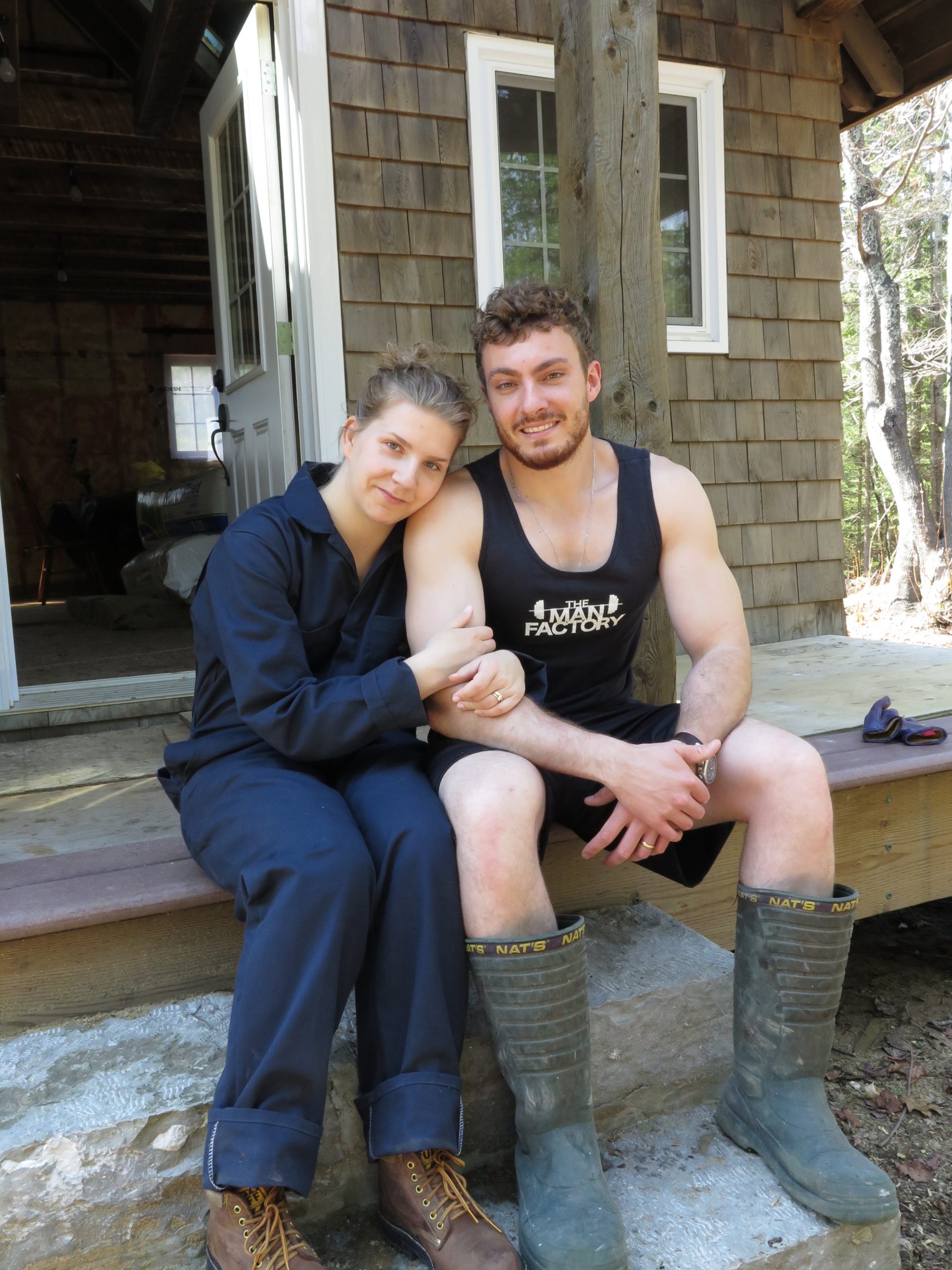A while back I got an email from a young man named Shane, and his questions took me back 30 years. Shane wants to build a home and life in the country, living deliberately close to nature and being as self sufficient as he can. Shane has a wife and they’ve just discovered they’ll be parents for the first time. “I’m excited but nervous”, says Shane, “mainly because we just put our house up for sale, with plans to move to the country. I’d like to do some kind of modern homesteading, but convincing my wife is a lot harder than I thought. She thinks a growing family needs at least a 2000 square foot house. I believe something smaller will do. How did you do it all those years ago homesteading and starting a family?”
Shane wrote because he read about my experiences moving from the city to the country as a 20-something year old man back in the 1980s, and I understand what he’s trying to do. The fact is, young people today have it harder than I did starting out, just like my generation enjoyed fewer opportunities starting out than my baby boomer parents did. Numbers tell part of the story.
Back in 2010, Statistics Canada reported that the median annual income for people between 20 and 24 was $13,800. Back in 1976, this same age group enjoyed an income of $23,400 adjusted for inflation – nearly 10-grand more per year. Jobs these days pay less than they used to in absolute terms, housing is more expensive relative to income, and energy costs more. These are some of the reasons more young people stay in their parents’ home longer, they stay in school longer, and they share houses with friends rather than set up their own household.
The reason I chose modern homesteading is because I hoped I’d be better off financially and emotionally if I did some things directly for myself with my own hands, rather than earn money and pay others for everything with after-tax dollars. By-and-large this has proven true, at least in the big things such as building a home, heating that home, doing household repairs and producing some foods. The harder things get for young people, the more the do-it-yourself approach to living makes sense.
I was nervous at Shane’s stage in life too, as a soon-to-be-father. This is a natural reaction for any man who takes his responsibility of impending fatherhood seriously. Today the child I was nervous about is 30 years old. His name is Robert and four years ago he found out that his wife, Edyta, was expecting their first child. That’s them below in the little homestead house they built on our property. Temperament and situation persuaded Robert to create his own modern homesteading life as I did. I’m coaching Shane the same way I’ve coached my own homesteading son.

First, expect to work harder homesteading than with a full time job, especially at the beginning. Second, it’s entirely possible to raise a family in a small house, especially if you live in the country. Kids spend far less time indoors in the country than they do in the city – at least they should. If you need more floor space, build onto your main house later.
Modern homesteading is all about doing more for yourself directly, without leaving your property for work or supplies unless you want to. But like many life philosophies, you can take it too far too fast. It shouldn’t be like leaping into a lake, but more like easing yourself into the water slowly, wading in from shore, adding more and more activities of self reliance as you succeed. Most people fail at homesteading because they leap too fast and too far all at once, trying to steer their lives in directions that may only have made sense in a magazine story, some books or a “reality” TV show.
Canada, the country where I live, offers more opportunities for living a rural life in a direct, hands-on way than most other countries in the world. And while this approach isn’t for everyone, I’m happy to tell the Shane’s of this world that there’s a huge amount of untapped satisfaction out beyond city limits. COVID has gotten more people thinking along these lines, which I consider a silver lining to a bad situation made much worse by poor governmental management. My main advice to anyone with an urge to live rurally and self-sufficiently is simple. There’s no need to shoe-horn yourself into some urban situation when so much satisfaction and so many opportunities exist beyond city limits for those willing to work hard and smart.



